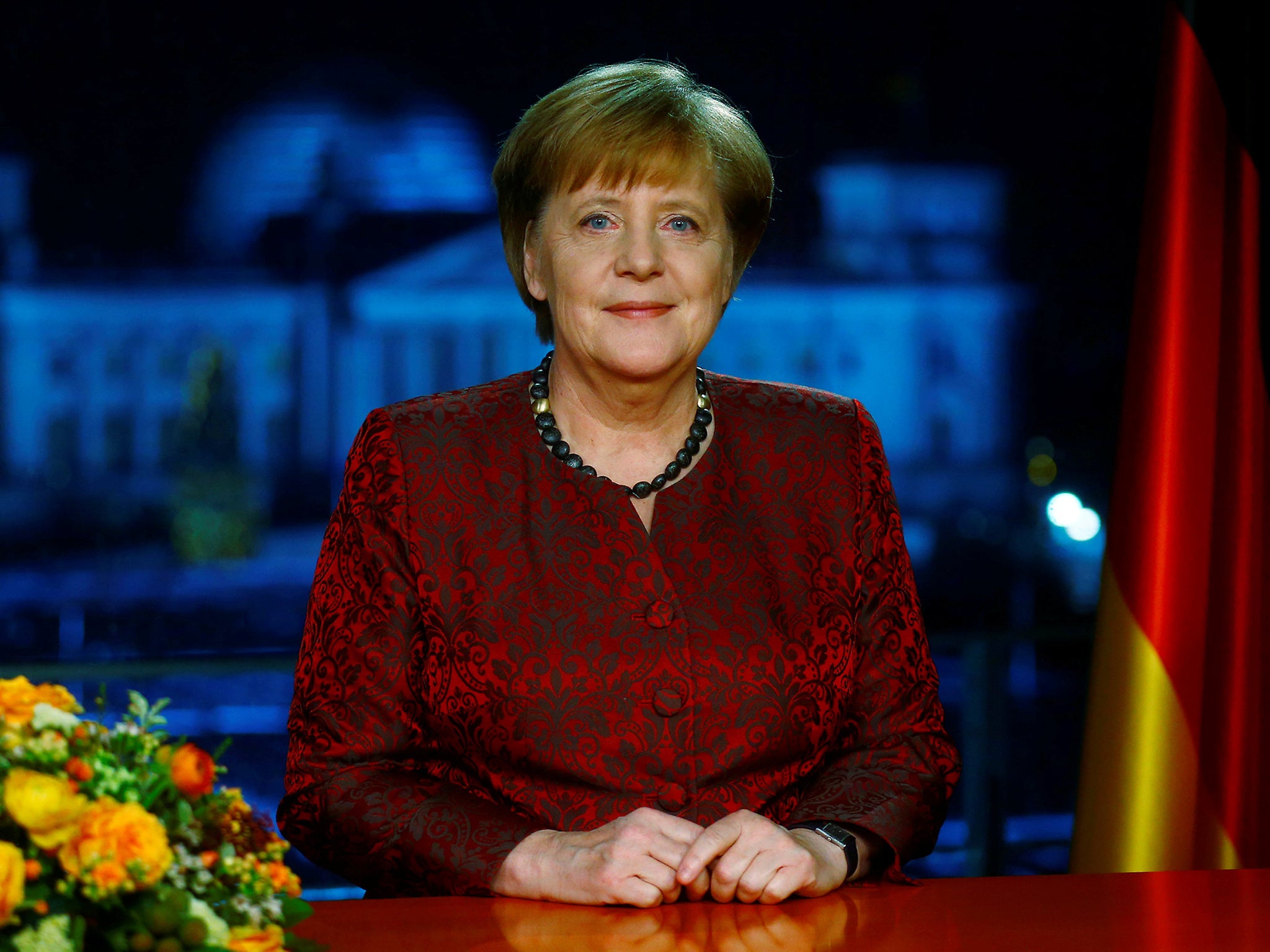Angela Merkel 'confident' of forming coalition government with Social Democrats
Progress follows lengthy talks between the SPD and the Conservatives

Your support helps us to tell the story
From reproductive rights to climate change to Big Tech, The Independent is on the ground when the story is developing. Whether it's investigating the financials of Elon Musk's pro-Trump PAC or producing our latest documentary, 'The A Word', which shines a light on the American women fighting for reproductive rights, we know how important it is to parse out the facts from the messaging.
At such a critical moment in US history, we need reporters on the ground. Your donation allows us to keep sending journalists to speak to both sides of the story.
The Independent is trusted by Americans across the entire political spectrum. And unlike many other quality news outlets, we choose not to lock Americans out of our reporting and analysis with paywalls. We believe quality journalism should be available to everyone, paid for by those who can afford it.
Your support makes all the difference.The largest parties in Germany, Angela Merkel’s Conservatives and the Social Democrats, have said they are “confident” they can form a coalition government following long talks between the leaders.
The joint announcement will be welcome relief to Ms Merkel whose party was weakened following last year’s election.
"Confidence has grown and we are optimistic heading into the talks," read the statement, issued after three hours of talks between Ms Merkel and other leaders of her Christian Democrats (CDU), her Bavarian CSU allies and the SPD.
She is under pressure to reach a deal with the centre-left Social Democrats (SPD), which also lost ground in the election, but the two sides have bickered over a range of issues, notably immigration and taxation.
SPD leader Martin Schulz praised the "concentrated, focused consultations" he had had with leaders, which he said were a good basis for formal exploratory talks. The discussions are due to start on Sunday and could lead to official coalition negotiations in a few weeks.
Having failed before Christmas to form a coalition with the Greens and pro-business Free Democrats (FDP), Merkel is now leading an interim government with the SPD that is keeping things ticking over in Europe's biggest economy.
Ms Merkel's CDU/CSU alliance ruled in a 'grand coalition' with the SPD from 2013 to 2017 and, with investors fearing a protracted power vacuum that could delay reforms in Germany and the European Union, she is pressing for a re-run of that arrangement.
But the SPD has shown reluctance, with some of its members favouring a looser cooperation agreement or supporting a minority government.
The two blocs are at odds on issues from healthcare and immigration to Europe and pensions and, if no deal is done, Ms Merkel's future as chancellor would be thrown into doubt with new elections a distinct prospect.
In recent days some conservatives, especially from Bavaria, have stoked tensions by calling for tax cuts for high earners and reductions in benefits for asylum seekers, which the SPD opposes.
"Again verbal shenanigans from the Bavarian CSU," tweeted one of the SPD's deputy leaders, Ralf Stegner.
"Always the same recipe: humour the lederhosen public. No sense of reality in terms of agreeing with the other parties."
But CSU leader Horst Seehofer sounded more conciliatory on Wednesday, saying "important days" lay ahead. "We will do everything in these talks to reach sensible agreements," said the Bavarian before internal party talks on Wednesday morning.
One of Ms Merkel's priorities will be to establish an atmosphere of trust between the parties, the absence of which led to the collapse of the talks with the Greens and FDP in November.
Many within the SPD fear sharing power with Merkel again will lead voters to punish it further. The SPD had said it would go into opposition after the election in which its support slumped to its lowest level since 1933.
To keep the rank and file on board, the SPD leadership has said it will let its members vote on Jan 21 on going ahead with detailed coalition talks after a first exploratory phase has been completed.
"I have said that (a coalition deal) must be agreed at the very latest by Easter," said Seehofer.
Reuters contributed to this report
Join our commenting forum
Join thought-provoking conversations, follow other Independent readers and see their replies
Comments